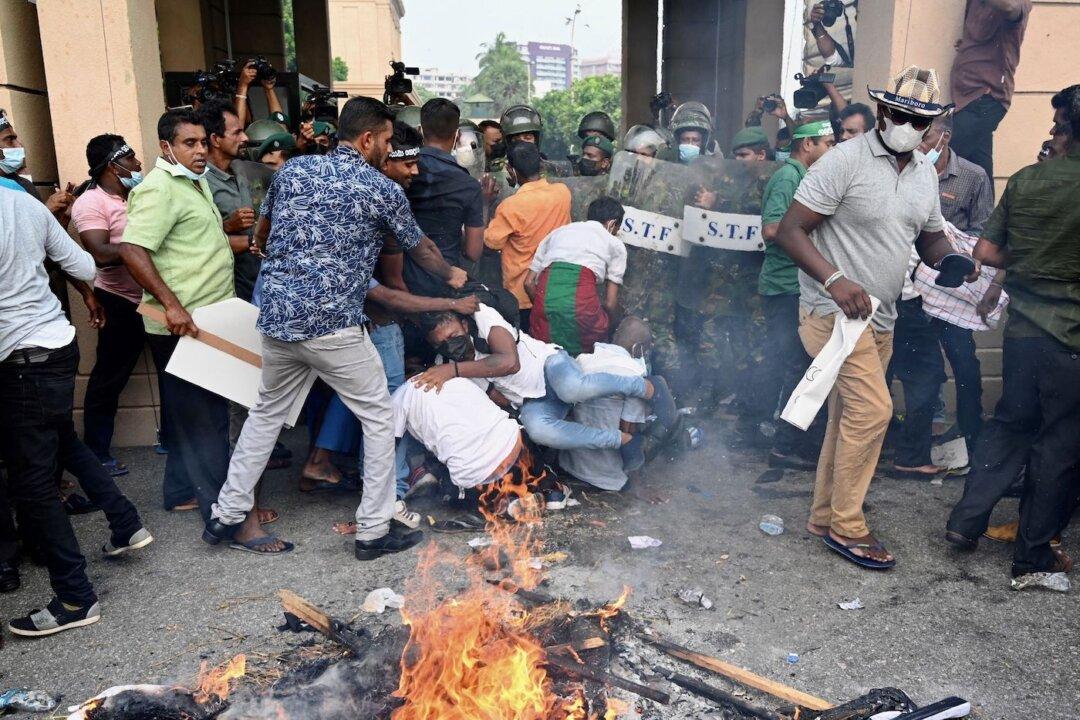Sri Lanka’s cabinet ministers resigned en masse as protests over the government’s handling of the country’s worst economic crisis in decades escalated, the education minister said on April 3.
The country’s stock exchange fell by 5.9 percent following the mass resignation, prompting authorities to halt trading on April 4, AFP reported.





